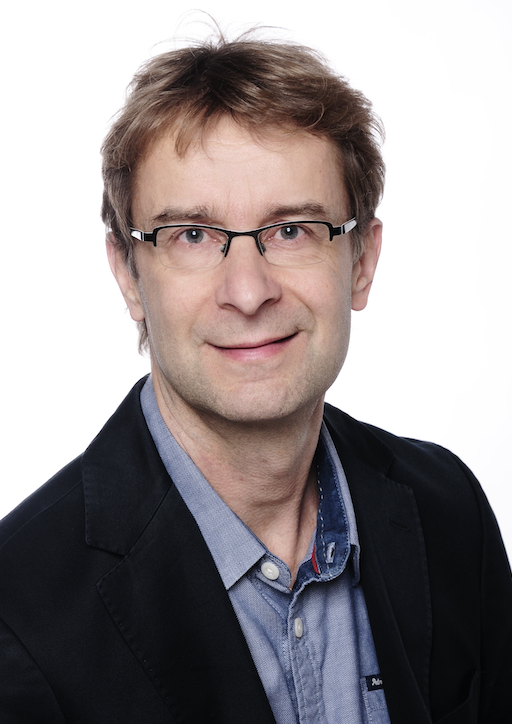Our DFGE Interview Series is being continued with an interview with Frank Werner, Director – WEC Europe e.V. We talk to him about the World Environment Center and why an ESG strategy is becoming increasingly important. In addition, we answer for the first time what exactly companies can expect from the „new“ WEC after its intended merger with the Wildlife Habitat Council (WHC).

Frank Werner
Director – WEC Europe e.V.
World Environment Center (WEC)
www.wec.org
What does the WEC stand for and what are the activities in Europe?
The World Environment Center (WEC), founded in 1974 by UNEP, is an NGO headquartered in Washington, D.C. with offices in San Salvador and Munich. WEC serves its member companies as facilitator of business discussions to advance sustainability strategies such as decarbonizing value chains, implement solutions for biodiversity, circularity, water use, etc. and other topics such as how to best disclose corporate sustainability information according to current practices (e.g. CSRD). In Europe, WEC Europe e.V. is a registered NGO (gemeinnütziger Verein in Germany) and serves as platform for the heads of Sustainability of European companies to discuss strategies.
What is the value for companies to discuss ESG strategy with other companies?
Sustainability is a relevant factor for all companies. Some industries are more exposed to certain topics (e.g. water, human rights) and other industries have already found solutions to challenges that most companies are exposed to (think of circularity or biodiversity). WEC’s events provide a safe space under the Chatham House Rule to discuss challenges and share practical solutions that have been tested and that work. These discussions with like-minded decision-makers are incredibly valuable as they inform which of the well-intended advises out there are both manageable and economical. Furthermore, none of the participants has the intention to sell a service, thus the information shared is generally an honest contribution to solve a problem. Good networking is another benefit of these discussions: WEC’s events are for senior executives and small enough that each participant finds anybody they run into a valuable contact.
Why is it good business sense to take ESG (or Corporate Sustainability) serious?
Global Change creates vulnerabilities and business opportunities. Whether it is the climate crisis, lack of substances and materials to produce products, slavery work in supply chains or your employee’s pride in the company he/she works for. All of this affects your business, especially when governments, too, react and regulate. Sustainability or ESG is now a major risk in companies value chains as regulation and class-action lawsuits can easily ruin a business model. That is why investors increasingly withdraw from fossil fuels while global companies withdraw from risky suppliers. On the other hand, a company that provides a solution to any of the global challenges can make a fortune. That is why all companies should stay informed and understand Global Change. Some companies are already integrating the function of Chief Sustainability Officer with the Head of Business strategy.
Many full-service consulting companies and specialized agencies support companies in their sustainability journey, and the number is growing. How does WEC, an impactful but comparatively small NGO with a 40-year-old history, react?
For the past twenty years WEC has worked with business on sustainability from two ends: thought leadership events with senior sustainability experts in global companies have helped them develop strategies that work in practice. Higher up the value chain WEC works with SMEs to implement technical solutions for energy and water efficiency, waste reduction, environmental management systems, etc., and cost reductions. Along other areas of a value chain, there exists an abundance of work for experts to implement strategies and to collaborate with Tier 2 to Tier 4 suppliers, leading to the conclusion that combining WEC with another organization that can fill that gap is a promising next step. This strategy was exactly the idea presented to WEC when our former CEO stepped down in September 2023 and Margaret O’Gorman, President of the Wildlife Habitat Council (WHC) approached WEC to discuss a merger. We understood that WHC, a member-driven NGO that is also headquartered in Washington, D.C., can be that partner as it helps companies implement opportunities through biodiversity into their operations, as well as offers a best-in-class certification scheme for conservation projects on corporate lands. Since January 2024, Margaret has assumed the role of President & CEO of WEC, while also remaining President of WHC, and has lead preparations for the combination of WEC and WHC.
What exactly can companies expect from the new WEC after its combination with WHC?
We aim to combine our respective decades of working at the intersection of business and environmental sustainability to build an organization that delivers value from the C-suite to the site of operation and along the value chain. We will expand opportunities for best-in-class collaborations with companies to halt and restore nature loss, improve water stewardship, enhance climate and community resilience, and support the transition to a circular economy. We’ll do this through mature programs in Thought Leadership, Certification, and Capacity Building in different parts of corporate value chains across all sectors.
One of WEC’s greatest strengths is its close relationships with decision-makers of its member companies. The same is true for WHC. In addition to in-depth strategic discussions, we will be able to help implement company initiatives and projects. With the combined membership we can draw from an increase in expertise, company-led initiatives, best practices, network of partners around the globe, and the ability to develop and implement activities in parallel. The new organization will be an efficient and innovative entity with senior experts in all functions that serve global companies and their suppliers in all major world regions.
How can a company learn more about WEC or join the organization?
Companies are invited to visit WEC’s website (www.wec.org), register to WEC’s newsletter and are very welcome to contact WEC Europe’s Director Frank Werner () who is based in Munich, Germany. DFGE’s clients may also want to participate in webinars that WEC and DFGE occasionally plan in collaboration.









